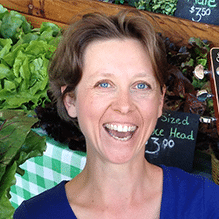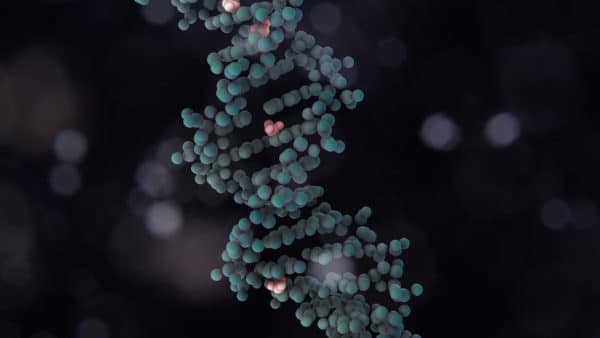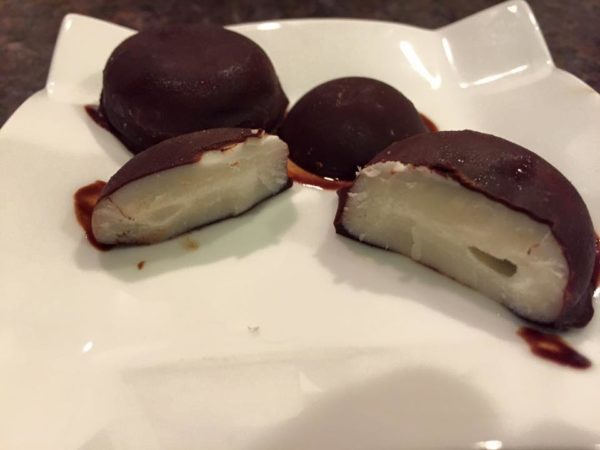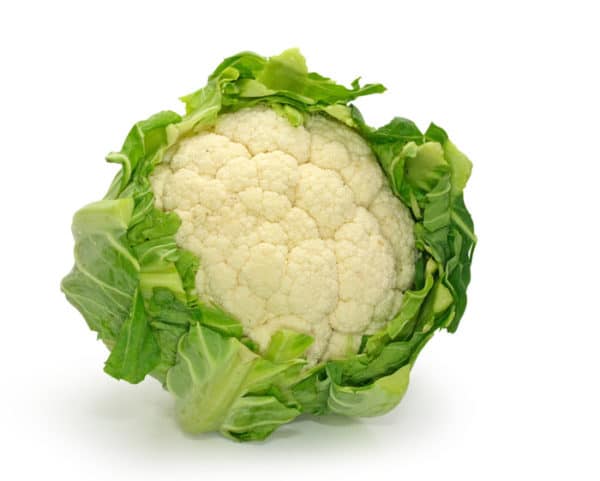
 Host and Guest:
Host and Guest:
Dr. Ritamarie Loscalzo interviews Steph Jackson
In this show you’ll learn:
- What are some things you might experience when your digestive bacteria are out of balance
- The difference between finding the balance of bacteria for you vs. just taking probiotics
- Some ways that bacteria can get out of balance in the first place
Background:
Next time you are trying to decide what’s for dinner, consider that you are eating for two. You and your gut microbiome.
The bacterial community in your colon is home to about 100 trillion bacterial cells; there are about 10 times more of these bacterial cells than there are human cells in your body, and they represent a vast number of different species.
Join Dr. Ritamarie and Steph Jackson as they discuss how to keep your microbiome mass of bacteria happy. Gut microbiomes that contain healthy, inflammation-reducing bacteria could help reduce the risk of a myriad health conditions: cancer, heart disease, and infection.

After her son was born about six years ago, her health started to decline. Her energy started to rapidly decline, and she started to have some pretty extreme body pain. She started visiting the doctor trying to find some answers. Her joint pain got to the point where it was debilitating. Often she was too sore to pick up vegetables and run them through her juicer. The truth was she was so exhausted and in so much pain that she could barely make it through the day – and often didn’t.
She finally started getting referred to specialists. She saw a gastroenterologist for a while along with a rheumatologist and an allergist. At one visit to the allergist, he proceeded to tell her that she was being far too optimistic to believe that her food could have anything to do with her symptoms. He told her to go home and take an aspirin. She decided it would be unwise to physically attack a man holding 15 tiny needles, but she was pretty annoyed.
It was at this moment when she realized that nobody was going to find a way to fix her. She had to do it herself.
Having already studied vegan, allergy-free, spiritual, raw, gluten free you-name-it nutrition for years, she began to look deeper. She began to study bacteria, the chemistry of inflammation, hidden sources of toxins, herbal medicine, and the endocrine system. She followed a systematic approach and learned things about her body that NOBODY ever would have found. She got to the root of her pain and fixed it.
Now she feels good, she has the energy for her work and her relationships, she enjoys her life, and she feels good about the way she looks and feels.
Steph is currently a student in Dr. Ritamarie’s Nutritional Endocrinology Practitioner Training program.
Additional Resources:
Receive five simple recipes for non-dairy comfort food from Steph in her Probiotic Dessert e-book! It also includes 3 essential steps to creating the perfect non-dairy yogurts and nut cheeses.
Steph is also one of Dr. Ritamarie’s Functional Nutrition Coaches in her year-long Energy Recharge Coaching program. If you are yearning to have more energy and focus, and to feel more confident in your body’s appearance AND performance, join us now.
Check out Dr. Ritamarie’s VITAL Health Community for additional resources on the role that plants and herbs play on your hormones and digestive health, as well as strategies to include in your daily routines to achieve more vitality.
Be sure to friend me on BlogTalkRadio!
Dr. Ritamarie’s BlogTalkRadio Channel
Use the social media icons to share this important show with your loved ones!
Share this:

Are you feeling stuck?
Do you feel as if something is missing from your practice that's keeping you from delivering breakthrough outcomes for your clients?.
Recent Posts
Our Programs
Nutritional Endocrinology Practitioner Training (NEPT)
The Mastery and Certification tier is our flagship program and provides everything you need to feel confident as a practitioner who knows how to get results that lead to healthy and happy clients.
Functional Assessment Mastery
Explore the relationships between the most important hormones and their relationship with nutrition.
Functional Nutrition Mastery
Learn how to support your clients to eat and supplement in a way that reduces and eliminates chronic symptoms.
Medical Disclaimer: The information on this website is not intended to replace a one-on-one relationship with a qualified health care professional and is not intended as medical advice. It is intended as a sharing of knowledge and information from the research and experience of Dr. Ritamarie Loscalzo, drritamarie.com, and the experts who have contributed. We encourage you to make your own health care decisions based upon your research and in partnership with a qualified health care professional.
Disclosure: Sometimes (but not always), when I share resources in my programs, newsletter, and on my website, I'm using an affiliate link, which means I do make money if you buy. My credibility is extremely important to me; therefore, I only endorse the products, services, and people I believe in. DrRitamarie.com is independently owned and the opinions expressed here are my own.
Click here to see our Privacy Policy.














[…] What are ‘probiotic’ bacteria […]
[…] Radio Show: The Invisible Universe in Your Body […]
[…] that are needed to make your body lean. There are additional ingredients, such as gut health, intestinal bacteria, biological rhythms, inflammation, the stress response, leptin signaling, and fat cell health that […]
[…] on improved gut health! Add probiotics or fermented foods to their diet. Lactobacillus love to eat oxalate. Fermented foods can also help […]
[…] lot of them are probiotics. Probiotics are bacteria that live in your gut – they are living cultures. They are considered “friendly flora,” otherwise known as the good guys in your gut’s lining. […]